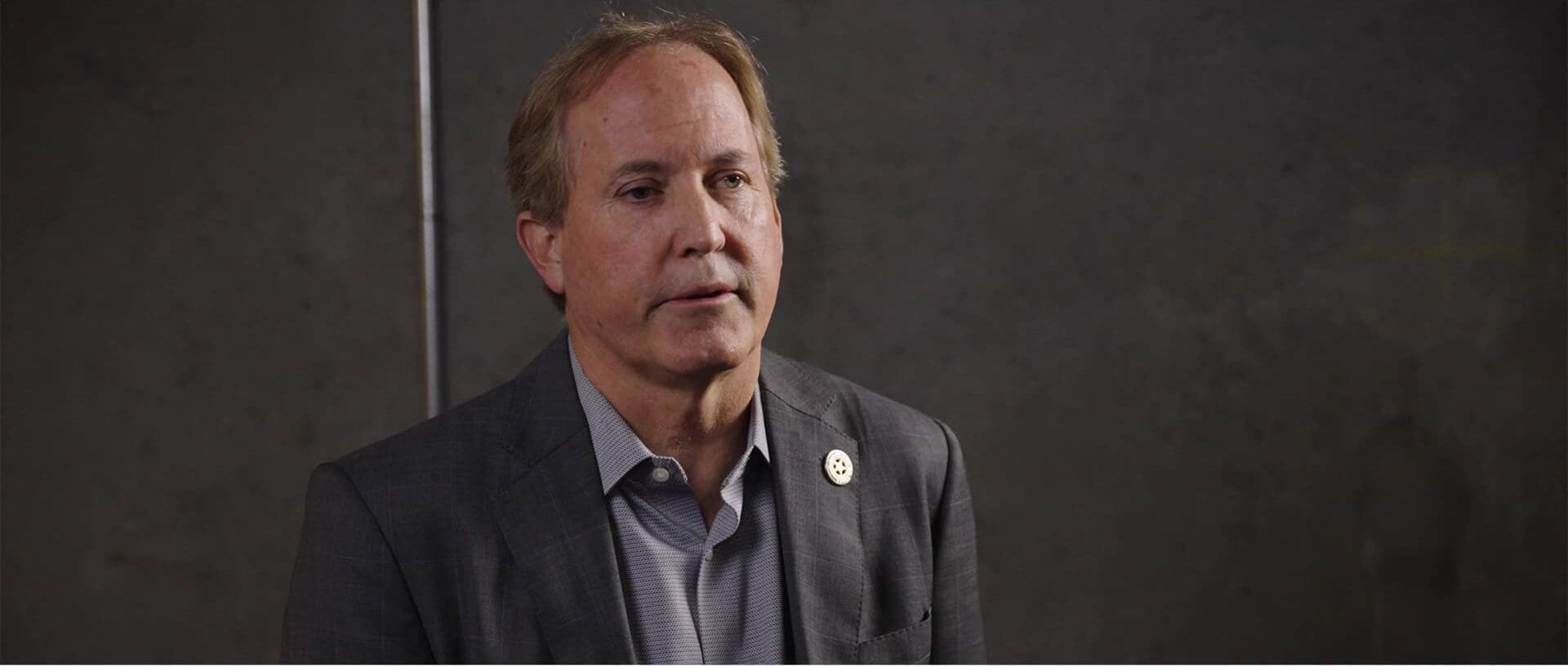On a December afternoon as he reflected on the past year, Mark Pulliam, a retired attorney and longtime ally of Texans for Lawsuit Reform, offered a scathing assessment of the influential group.
He found that the organization has strayed from its core mission and is now undermining conservative causes in Texas. “They’ve lost their way,” Pulliam said bluntly. “They’ve definitely lost their way.” Given his history with the organization and plainly thoughtful nature, Pulliam’s critique is poignant and not easily dismissed.
Pulliam said repeatedly during the interview that the group had once been on the right track. They’d been a crucial part of what made Texas a success.
In Pulliam’s telling, TLR’s accomplishments were central to the “Texas miracle” that fueled the state’s economic boom.
“A dysfunctional civil justice system is not attractive to the business community,” he explained. “You see how Texas has been flooded with large national companies, big tech. A lot of what those people were attracted by was a sensible civil justice system. TLR, I think, can crown itself with the laurel that they are responsible for taking a legal system that had been controlled by Joe Jamail and his ilk and turning it into the model.”
Joe Jamail was an immensely successful trial lawyer whose actions may have been the straw that broke the camel’s back after he appeared on an episode of 60 Minutes in 1987. During the broadcast, Jamail was seen fraternizing with a member of the Texas Supreme Court he had donated to. The court had just upheld a multibillion-dollar verdict in Jamail’s favor.
“Judicial Hellhole”
After a career litigating in California, which he described as having a legal system “hijacked by the plaintiffs’ bar,” Pulliam moved back to Texas in 2012 and quickly aligned himself with TLR. “I reached out to them, expressed that I was a retired lawyer, had an interest in this area, was very impressed at what they had done, and wanted to see how I could help,” he recalled.
It may seem like a foreign concept in 2024, but in the 1980s and early 1990s, Texas was hell to do business in. This fact was so well established that it was reduced to writing in the Wall Street Journal and the London Financial Times. The message was clear: Texas was closed for business.
In 1994, during this oppressive period, four businessmen from Houston—Dick Weekley, Leo Linbeck, Dick Trabulsi, and Hugh Kelly—decided to tame this Wild West. They created Texans for Lawsuit Reform. They toured the state, gathering support from other business owners, and drafted a tranche of legislative reforms. They started to change things.
Included among the reforms were limits on punitive damages and an end to venue shopping, and proportionate responsibility.
TLR’s creation and bold vision coincided with the rise of the Republican Party in Texas and George W. Bush’s election as governor in 1994. Bush ran on reforming the state’s civil justice system. “So long as we have a lawsuit system, a tort system that threatens our producers and providers and risk takers with frivolous and junk lawsuits, we will not have the job growth in the private sector we want,” he said at an October 1994 campaign rally.
Bush won in 1994. When the dust had settled at the end of the subsequent 1995 legislative session, TLR had won too. State lawmakers had passed every one of the eight measures TLR had proposed.
And that was just the beginning.
As was the case in 1994, in 2003 TLR’s fortunes rose with the GOP’s power surge. That year, Republicans gained a majority in the Texas House for the first time since Reconstruction. TLR then enjoyed another banner legislative session.
Notably, the group finally managed to pass medical malpractice reforms. This resulted in the re-emergence of doctors who’d been retiring early or fleeing the state.
After these advances in 2003, the left cried uncle. Texas Monthly said the group had achieved “total victory” after that session. But it would be in 2009 that the group moved a final large slate of reforms to cap off an improbably successful quest to reform Texas’ trial courts.
Texans can go directly to the horse’s mouth for confirmation. In May of 2021, Dick Weekley, one of TLR’s founders, said, “We changed the state over the first 15 years, and we’ve had a pro-business state ever since.”
This cemented victory coincided nicely with Pulliam’s return to the state. TLR’s success in securing key tort reforms had turned Texas from a “judicial hellhole” into a national model.
“Lost Their Way”
The dark days of a Wild West legal environment were in the distant past. “The problem had been largely fixed,” Pulliam said. “Texas was a national model of a business-friendly, sensible civil justice system. It was one of the legs of the three-legged stool of the Texas model: low taxes, reasonable regulation, and a sensible civil justice system.”
Pulliam eagerly lent his voice to TLR’s cause. He wrote favorable articles, spoke to grassroots activists, and donated to help protect the group’s legislative gains.
But he contends TLR has lost its way. He points to its recent conduct, especially its involvement in the 2022 primary against Attorney General Ken Paxton and the subsequent impeachment effort.
“They basically blundered in a way that didn’t seem to me to be easily explained other than we don’t like certain types of conservative Republican politicians,” he said.
Pulliam is particularly critical of TLR’s decision to back Eva Guzman’s primary challenge against Paxton. Their anointed candidate finished a distant third.
“I thought if they really think [Paxton is vulnerable], they don’t have their finger on the pulse of the Texas electorate like they should,” he suggested. “Simultaneously taking Eva Guzman off the Texas Supreme Court where she had by and large done a very good job… it all seemed kind of amateurish. And the one thing you could never say about TLR was that they were amateurish.”
Out of Touch
Since its founding, TLR had been known for being professional, calculating, and concealed. In recent years, the organization has been asserting itself more overtly and with less finesse. Pulliam argued that the 2022 race coincided with a broader realignment in Texas politics, with TLR increasingly at odds with the conservative grassroots.
“It’s not just TLR; I think it’s corporate America,” he explained. “Over the last 10 or 20 years they’ve gone from being basically a Republican party surrogate, supporter of tort reform, to now they support a lot of woke policies. They are distancing themselves from Republicans, particularly conservative Republicans.”
Pulliam was taken aback when TLR emerged as a driving force behind the Attorney General’s impeachment after Paxton’s resounding primary win in 2022.
Shortly before the impeachment was set to begin, TLR issued a press release, denying involvement in driving the impeachment while insisting that the impeachment go forward. This public lobbying of the Senate to move forward came while the grassroot voters called on lawmakers to abandon the process altogether.
What the public couldn’t have known was how involved their former ally was.
“I got access to some internal emails … showing that an op-ed that ran under the byline of Rick Perry in the Wall Street Journal apparently was not written by Rick Perry after all,” Pulliam said. “It was apparently written by Karl Rove and placed in the Wall Street Journal through the auspices of the TLR communications department.”
Pulliam sees TLR’s involvement in the impeachment as a telling indication of how far the group has strayed.
“The idea that TLR, after it made what I consider to be an ill-conceived political judgment to take out Ken Paxton, after spending millions of dollars, wasting millions of dollars of their donors’ money pushing Eva Guzman … to then use more of their resources to surreptitiously put these phony op-eds in the Wall Street Journal trying to undermine Ken Paxton while the Senate was deliberating—that has nothing to do with promoting tort reform,” he said.
“That’s serving as the muscle to take out a conservative grassroots elected official who they don’t like for reasons completely unrelated to tort reform,” Pulliam added.
What this looked like to outsiders, was a “devil’s bargain” made by TLR with Democrats and the GOP establishment to kneecap conservatives.
“They’re basically throwing in with the Democrats to undermine the voice of Republican voters who voted for conservative majorities in both houses, but aren’t getting conservative policies because of this conscious decision to kneecap the conservatives in order to promote the hegemony of the establishment,” Pulliam said.
He believes the group needs a course correction.
“I think they’ve gotten off course and have gotten somewhat off their brand,” he said. “There’s a certain amount of hubris that goes along, once you acquire this power and status, you want to maintain this power and status,” he said.
Pulliam isn’t alone in his assessment, as we’ll see in the next installment of this series: The Status Quo.
No ads. No paywalls. No government grants. No corporate masters.
Just real news for real Texans.
Support Texas Scorecard to keep it that way!



